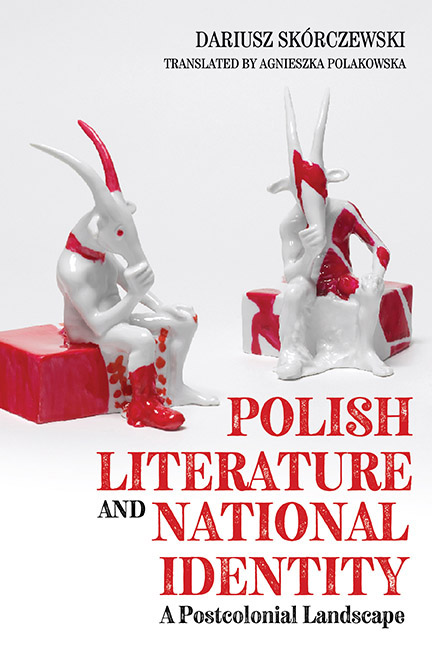Book contents
- Frontmatter
- Dedication
- Contents
- Acknowledgments
- Prologue: How It All Began
- 1 Through the Lens of Humanism, with a View to Transcendence
- 2 Postcolonialism in Poland
- 3 National Identity in a Postcolonial Framework: Necessary Clarifications and Opening Suggestions
- 4 Literature as Compensation: Comprador Intelligentsia vis-à-vis the Hegemonic Discourse—Preliminary Theoretical Remarks
- 5 Confronting the Romantic Legacy
- 6 The Natives’ Exclusion by the Empire's Poet? (Adam Mickiewicz, The Crimean Sonnets)
- 7 Identity as an Object of Inquiry (Pawel Huelle's Castorp)
- 8 The (East-)Central European Complex (Andrzej Stasiuk, On the Road to Babadag and Fado)
- 9 Colonized Poland, Orientalized Poland: Postcolonial Theory and the “Other Europe”
- 10 Slavic Issues with Identity: Marginal Notes to Maria Janion's Uncanny Slavdom
- 11 The Melancholia of Borderlands Discourse
- Afterword: Three Warnings
- Notes
- Bibliography
- Index
5 - Confronting the Romantic Legacy
Published online by Cambridge University Press: 25 March 2020
- Frontmatter
- Dedication
- Contents
- Acknowledgments
- Prologue: How It All Began
- 1 Through the Lens of Humanism, with a View to Transcendence
- 2 Postcolonialism in Poland
- 3 National Identity in a Postcolonial Framework: Necessary Clarifications and Opening Suggestions
- 4 Literature as Compensation: Comprador Intelligentsia vis-à-vis the Hegemonic Discourse—Preliminary Theoretical Remarks
- 5 Confronting the Romantic Legacy
- 6 The Natives’ Exclusion by the Empire's Poet? (Adam Mickiewicz, The Crimean Sonnets)
- 7 Identity as an Object of Inquiry (Pawel Huelle's Castorp)
- 8 The (East-)Central European Complex (Andrzej Stasiuk, On the Road to Babadag and Fado)
- 9 Colonized Poland, Orientalized Poland: Postcolonial Theory and the “Other Europe”
- 10 Slavic Issues with Identity: Marginal Notes to Maria Janion's Uncanny Slavdom
- 11 The Melancholia of Borderlands Discourse
- Afterword: Three Warnings
- Notes
- Bibliography
- Index
Summary
Indeed, our literature should counter what has been written for us so far, we have to look for a new path that opposes Mickiewicz and all the Spirit-Kings.
—Witold Gombrowicz, Diary 1953—1956“Narrating the Nation”
Postcolonial studies provides ample evidence that, regardless of geographic location, the experience of foreign hegemony deforms the subjugated population’s perception of reality. Literature offers numerous examples of this deformation. The modes of representation employed by authors from colonized nations and the image of the world inscribed in their work are tainted to varying degrees by the implications of their encounter with the colonial power. This contamination, moreover, results not so much from the servility of the collaborating authors as from the colonial situation itself. As the previous chapter's discussion of the comprador elites shows, it is structural in character for a colonized culture and also encompasses oppositional stances, thereby influencing anti-colonial discourse. Neither does the colonial experience exhaust itself on a thematic level; it impacts other aspects of the text, such as the means of signification, its style of expression, and even the choice of composition and genre. Among its other roles, literature functions as an instrument of individual and collective self-analysis, even self-therapy. As such, it is instrumental in the construction of collective identity and a natural space of narrating the nation. Literary works that emerge under the condition of subjugation inherently participate in the transmission thereof and actively shape mental attitudes, stances, and behaviors acquired as its result, even when they undertake to critically dissect or outright reject them.
For postcolonial studies in Polish literature and culture to adequately address the issue of modern Polish identity, it must look at Romanticism. It was during this period that the various formulas of what Homi Bhabha terms “narrating the nation” were established in Polish literature, journalism, historiography, and philosophy. This “narrating” is understood in the broad, cultural sense as underpinning national culture and identity. The process is neither simple, nor one dimensional, nor consistent, but it is rich in tensions between the nation's present, always experienced as fragmented, and the images of its past, built into its collective tradition by means of discourses to solidify collective self-identification. As Bhabha claims in his characteristic style, “The language of culture and community is poised on the fissures of the present becoming the rhetorical figures of a national past.”
- Type
- Chapter
- Information
- Polish Literature and National IdentityA Postcolonial Landscape, pp. 91 - 115Publisher: Boydell & BrewerPrint publication year: 2020

